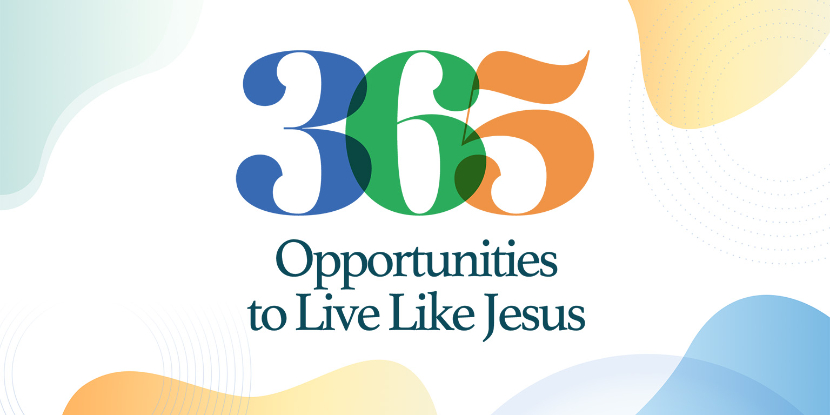From the July 2024 Issue

Online Exclusive: From This Point Forward
Initiate Revival in Your Heart
Peter Cartwright was sixteen years old in 1801, the year his life took a sudden turn. He, his father, and his brother had returned late at night from a nearby wedding where drinking and dancing dominated the festivities. His autobiography picks up the story:
A few minutes after we had put up the horses, and were sitting by the fire, I began to reflect on the manner in which I had spent the day and evening. I felt guilty and condemned. I rose and walked the floor. My mother was in bed. It seemed to me, all of a sudden, my blood rushed to my head, my heart palpitated, in a few minutes I turned blind; an awful impression rested on my mind that death had come, and I was unprepared to die. I fell on my knees and began to ask God to have mercy on me. . . .
Next morning I rose, feeling wretched beyond expression. I tried to read in the Testament, and retired many times to secret prayer through the day, but found no relief. I gave up my racehorse to my father, and requested him to sell him. I went and brought my pack of cards, and gave them to mother, who threw them into the fire, and they were consumed. I fasted, watched, and prayed, and engaged in regular reading of the Testament. I was so distressed and miserable, that I was incapable of any regular business. . . .
Soon it was noised abroad that I was distracted, and many of my associates in wickedness came to see me, to try and divert my mind from those gloomy thoughts of my wretchedness; but all in vain. I exhorted them to desist from the course of wickedness which we had been guilty of together. The class-leader and local preacher were sent for. They tried to point me to the bleeding Lamb, they prayed for me most fervently. Still I found no comfort, and although I had never believed in the doctrine of unconditional election and reprobation, I was sorely tempted to believe I was a reprobate, and doomed, and lost eternally, without any chance of salvation.
At length one day I retired to the horse-lot, and was walking and wringing my hands in great anguish, trying to pray, on the borders of utter despair. It appeared to me that I heard a voice from heaven, saying, “Peter, look at me.” A feeling of relief flashed over me as quick as an electric shock. It gave me hopeful feelings, and some encouragement to seek mercy, but still my load of guilt remained. . . .
Some days after this, I retired to a cave on my father’s farm to pray in secret. My soul was in an agony; I wept, I prayed, and said, “Now Lord, if there is mercy for me, let me find it,” and it really seemed to me that I could almost lay hold of the Saviour, and realise a reconciled God. All of a sudden such a fear of the devil fell upon me that it really appeared to me that he was surely personally there, to seize and drag me down to hell, soul and body, and such a horror fell on me that I sprang to my feet and ran to my mother at the house. . . .
Several months passed without young Peter finding relief from his guilt. He made his way to a church meeting (eventually called frontier “camp-meetings”), an off-shoot of meetings held in the wake of the revival that had broken out at nearby Cane Ridge (Kentucky).
To this meeting I repaired, a guilty, wretched sinner. On the Saturday evening of said meeting I went, with weeping multitudes, and bowed before the stand, and earnestly prayed for mercy. In the midst of a solemn struggle of soul, an impression was made on my mind as though a voice said to me, “Thy sins are all forgiven thee.” Divine light flashed all round me, unspeakable joy sprung up in my soul. I rose to my feet, opened my eyes, and it really seemed as if I was in heaven; the trees, the leaves on them, and everything seemed, and I really thought were, praising God. My mother raised the shout, my Christian friends crowded around me, and joined me in praising God; and though I have been since then, in many instances, unfaithful, yet I have never, for one moment, doubted that the Lord did, then and there, forgive my sins and give me religion.1
I share this long story for two reasons: to show where revival begins and where revival should lead.
Where Revival Leads
The second reason first: “Revived” leads to “revival.” Young Peter Cartwright didn’t just experience personal conversion, assurance, and transformation in his own life. He did what every committed follower of Jesus Christ is supposed to do: He shared what God did in his life with others so they could experience the same thing. In other words, being revived should lead to revival among others.
Peter Cartwright didn’t begin The Second Great Awakening in American history—but he played a major part in it. He was one of the first souls to be revived in the early days of the Awakening that spread to many states and lasted for decades. He became one of the most dynamic of all Methodist preachers who traveled on circuits throughout the frontier states preaching in churches and wherever they could get a hearing. Peter Cartwright is an example of where personal revival leads: from the heart of one to the hearts of others.
The revivals experienced in the Second Great Awakening in America (1800–1850) were often dramatic, as the accounts I have quoted reveal. While different revivals in Church history have differed in expression, they have always begun the same way: with inner examination and conviction.
Where Revival Begins
Read Psalm 51, which describes King David’s cry for revival after his sinful affair with Bathsheba (“Have mercy upon me, O God”—verse 1). Then consider his words in Psalm 139:23-24: “Search me, O God, and know my heart; try me, and know my anxieties; and see if there is any wicked way in me, and lead me in the way everlasting.” David knew where personal revival has to begin: in the individual’s heart and soul.
David’s words could have been written by those hungry and thirsty for righteousness at Cane Ridge or any of history’s great revivals. They are the words of a penitent soul, the words of one searching for renewed righteousness. That’s where revival begins: in the heart! And it is how revival begins: with conviction of sin. Remember: “Whatever is not from faith is sin” (Romans 14:23). And it is sin that quenches the Holy Spirit in the human heart (1 Thessalonians 5:19).
It doesn’t have to be conviction for sins as dark as King David’s. It can be conviction of an attitude of spiritual apathy, a lifestyle of spiritual or moral carelessness, a lifestyle of excluding the disciplines of holiness (church attendance, Bible study, and prayer), or harboring attitudes of resentment, unforgiveness, jealousy, or covetousness.
When the Holy Spirit speaks to us about the condition of our heart, without obedience there will be no personal revival. Part of the Holy Spirit’s ministry is to convict “of sin, and of righteousness, and of judgment” (John 16:8). And He brings conviction for a reason—so we will repent and be revived in righteous living.
How does conviction arise in the heart? By reading God’s Word and asking the Lord to open our eyes as we read (Psalm 119:18). By praying as David did: “Search me, O God, and know my heart” (Psalm 139:23). By God’s chastening (Hebrews 12:1-13). And by the counsel of others (Proverbs 11:14). The challenge is not in receiving conviction; the challenge is submitting to it.
What is the condition of your heart today? Is it ripe for revival? If you are reading these words in a place where you can do so, make this commitment to the Lord: “Let revival begin in my heart, O Lord. Once the spark of revival is ignited in me, let it spread to others.” Commit to taking whatever steps the Holy Spirit shows you. Let revival begin with you—today.
Sources:
1Peter Cartwright, Autobiography of Peter Cartwright (1856).
More Articles
This Month's Magazine Resource

What God Promises You
Using Scripture and powerful, real-life stories, Dr. Jeremiah helps you not just understand these promises but also claim them as your own.
Subscribe Now
Each month, read articles and devotionals from Dr. David Jeremiah that will encourage, challenge, and strengthen your walk with the Lord.














 Turning Point for God is a tax-exempt, not-for-profit, religious corporation as defined under Section 501(c)(3) of the Internal Revenue Code. Your donation gift(s) are very much appreciated and may qualify as a charitable deduction for federal income tax purposes.
Turning Point for God is a tax-exempt, not-for-profit, religious corporation as defined under Section 501(c)(3) of the Internal Revenue Code. Your donation gift(s) are very much appreciated and may qualify as a charitable deduction for federal income tax purposes.




